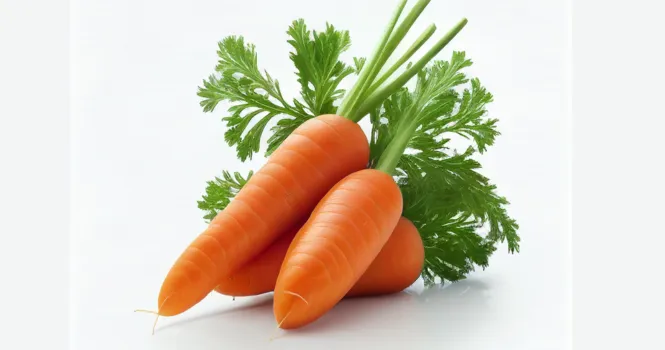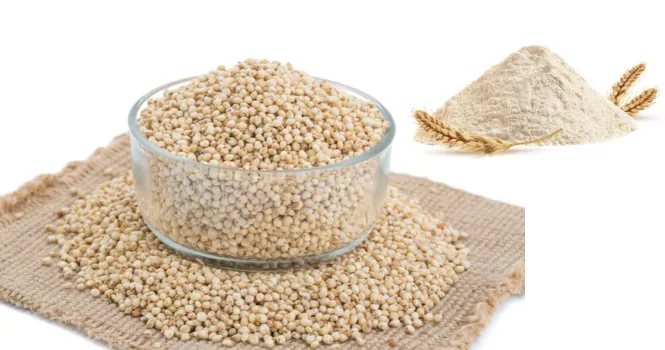Exploring the Benefits: Is Carrot Good for Diabetes?

What are Carrots?
Carrots are root vegetables, scientifically known as Daucus carota. Cultivated globally, they are known for their vibrant orange color, although they come in a variety of colors such as purple, black, red, white, and yellow.
Carrots are biennial plants in the Apiaceae family, which also includes parsley, celery, and parsnip. They are grown for their edible roots, which have a crunchy texture and sweet, earthy flavor.
Nutritionally rich, carrots are an excellent source of beta-carotene, which the body converts into vitamin A, essential for good vision, skin health, and immune function.
They also provide dietary fiber, antioxidants, and other vitamins and minerals like vitamin K, vitamin C, and potassium. Carrots can be eaten raw, cooked, or juiced, making them a versatile ingredient in a wide range of dishes from salads and soups to cakes and juices.
Glycemic Index and Glycemic Load
| Carrot Condition | Glycemic Index (GI) | Glycemic Load (GL) per Serving |
| Raw Carrots | Approximately 35 | 2-3 (for 80g serving) |
| Cooked Carrots | 39 to 85 | 2-4 (for 80g serving) |
- Glycemic Index (GI): Reflects how quickly a food raises blood sugar levels, with values categorized as low (55 or less), moderate (56-69), or high (70 or above).
- Glycemic Load (GL): Considers both the glycemic index and the amount of carbohydrate in a serving, providing a more practical sense of a food’s impact on blood sugar. A GL of 10 or less is considered low, 11-19 is medium, and 20 or above is high.
Is Carrot good for diabetics?
Carrots can be a healthy addition to the diet of someone with diabetes. They are low in calories and carbohydrates and have a low glycemic index (GI), especially when consumed raw.
This means they have a minimal impact on blood sugar levels when eaten in moderation. Carrots are also rich in dietary fiber, which can help regulate blood glucose levels by slowing the absorption of sugar into the bloodstream.
Moreover, carrots are an excellent source of beta-carotene, which the body converts into vitamin A, and they provide other essential nutrients like vitamins K and C, potassium, and antioxidants. These nutrients contribute to overall health and can support eye health, immune function, and heart health.
However, it’s important for individuals with diabetes to consider their overall carbohydrate intake and monitor their blood sugar levels when introducing new foods into their diet.
As with any food, portion control is key. Eating a balanced diet with a variety of vegetables can help manage diabetes effectively. It’s also advisable for individuals with diabetes to consult with a healthcare professional or dietitian for personalized dietary advice.
How to cook Carrots for Diabetics?
Cooking carrots for diabetics involves methods that preserve their nutritional value while minimizing their impact on blood sugar levels. Here are some diabetic-friendly ways to cook and serve carrots:
1. Steaming
- Method: Cut carrots into uniform pieces and steam them until they are tender but still slightly crisp. Steaming preserves the nutrients and natural sweetness without adding fats or sugars.
- Serving Suggestion: Toss steamed carrots with a sprinkle of herbs such as dill or parsley, and a dash of olive oil and lemon juice for flavor.
2. Roasting
- Method: Slice carrots and toss them with a small amount of olive oil, salt, and pepper. Roast at 425°F (220°C) until they are caramelized and tender, which enhances their natural sweetness.
- Serving Suggestion: Roasted carrots can be seasoned with rosemary or thyme before cooking. Serve as a side dish with a protein source like grilled chicken or fish.
3. Sautéing
- Method: Sauté sliced or diced carrots in a small amount of olive oil over medium heat until they’re tender. This method allows for the addition of flavors from garlic, onions, or spices.
- Serving Suggestion: Add a sprinkle of cinnamon or cumin for a warm, spicy note. Pair with other non-starchy vegetables and lean protein for a balanced meal.
4. Raw with a Healthy Dip
- Method: While not cooked, raw carrots can be a crunchy, nutritious snack. Slice carrots into sticks or use baby carrots.
- Serving Suggestion: Pair with a healthy dip like hummus or a yogurt-based dip to add protein and healthy fats, which can help to further stabilize blood sugar levels.
5. Incorporating into Soups and Stews
- Method: Add chopped carrots to soups and stews. They add sweetness and texture without needing to be the main ingredient.
- Serving Suggestion: Use a variety of non-starchy vegetables and lean proteins in your soups and stews to create a nutrient-rich, low-GI meal.
Key Tips for Diabetics:
- Moderate Portions: Even though carrots are healthy, it’s important to watch portion sizes to manage carbohydrate intake.
- Balance the Meal: Always aim to balance your meal with a good mix of fiber, protein, and healthy fats to minimize the impact on blood sugar levels.
- Be Mindful of Additions: Avoid adding sugars or high-carbohydrate ingredients to carrots. Opt for natural herbs and spices for flavor enhancement.
By choosing these cooking methods and being mindful of overall meal composition, diabetics can enjoy carrots as part of a healthy, balanced diet.
Frequently Asked Questions
Do carrots raise blood sugar?
Carrots have a low glycemic index, especially when eaten raw. They can cause a minimal rise in blood sugar levels, making them a healthy choice for most people, including diabetics, when consumed in moderation.
Can a sugar patient eat carrot and beetroot?
Yes, patients with diabetes can eat carrots and beetroot, but it’s important to monitor portion sizes. Both vegetables contain natural sugars, with beetroot having a higher glycemic index than carrots. Consuming them in controlled amounts as part of a balanced diet is advisable.
What vegetable raises blood sugar?
Vegetables with higher starch content, such as potatoes, corn, and peas, tend to raise blood sugar more significantly than non-starchy vegetables like leafy greens, broccoli, and carrots.
How many carrots can a diabetic eat a day?
The amount of carrots a diabetic can eat depends on individual dietary needs and overall carbohydrate goals.
Generally, a small to medium-sized carrot or about half a cup of chopped carrots is considered a reasonable serving size. Consulting with a healthcare provider or dietitian can provide personalized guidance.











